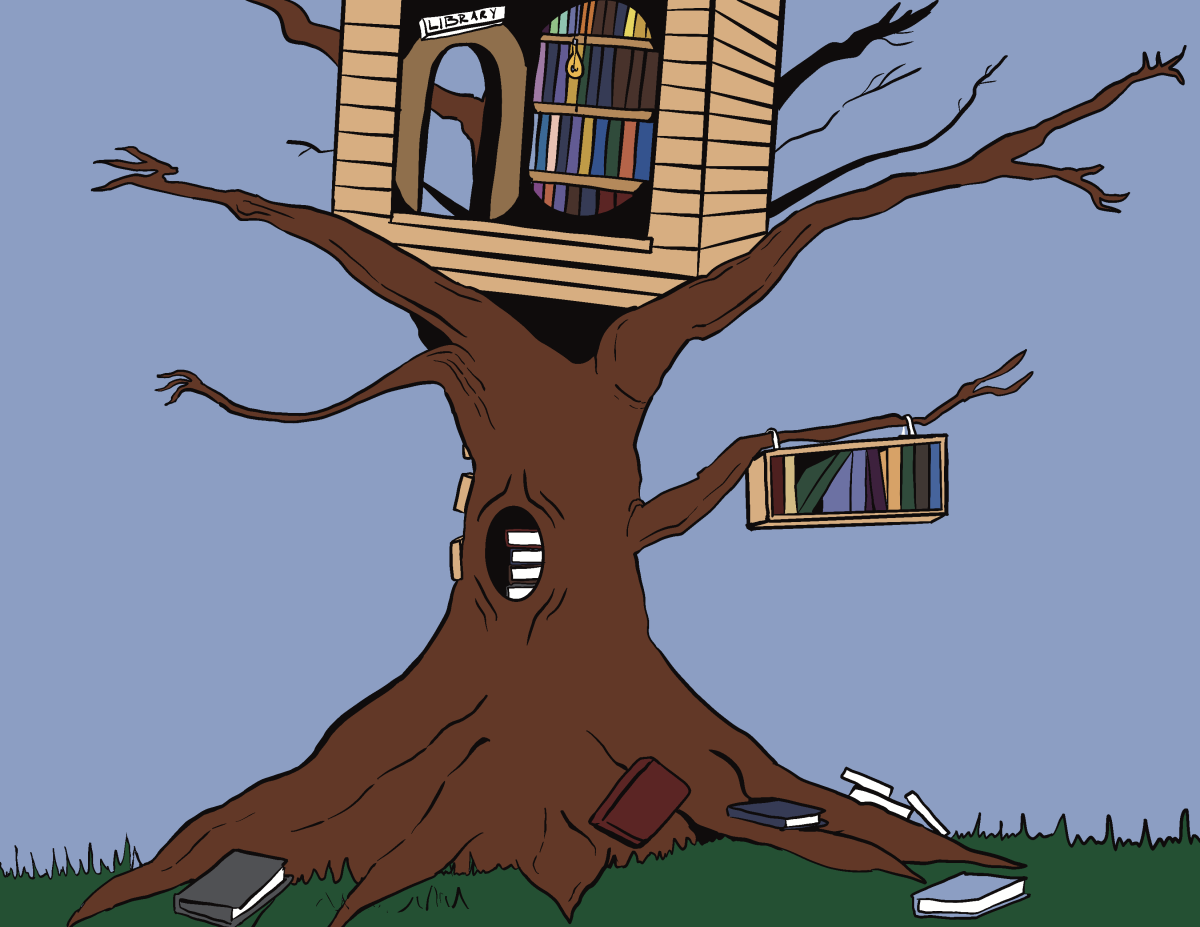The Natural Resources Library (NRL), located in Jordan Hall, serves as a quiet escape for students on campus. This branch library caters to members of the College of Natural Resources (CNR) — a small, but close-knit community on campus. It also attracts visitors from the nearby marine, earth and atmospheric sciences program.
The library provides much-needed study space to students who are isolated due to their living arrangements. According to Robert Olendorf, director of the NRL, that population includes students from the dorms at Wood Hall and the Avent Ferry Complex.
“Before the renovations, depending on the day, we were probably talking 30 to 60 students using the library per day,” Olendorf said.
The renovations are part of an ongoing effort to revamp the library. Currently, the NRL has relocated to Biltmore Hall for the duration of those renovations.
“I suspect that that number [of student visitors] will go up quite a bit because we will have more seating and the library itself will just be nicer,” Olendorf said.
Olendorf also shared that the NRL will be making some changes to the content of its shelves.
“First, we are drastically reducing the amount of books that we have in the library,” Olendorf said. “We will have about 10% of the previous collection, we will still have some books there, probably the most recent and most used books.”
However, the general resources available at the library will not change.
“We’ll have the same resources that have been there before,” Olendorf said. “We have significant tech lending and — this is where NRL is different — we have things like GPS units and critter cams.”
Currently, the facility is also under construction as renovations are completed to add more study rooms as well as a “grab-and-go” style coffee shop.
“We are kind of the only place for some students,” Olendorf said. “That’s actually one of the reasons that we were excited about having the coffee shop there. We are kind of in a food desert. [Students] can go across the street, but Western can be hard to navigate sometimes.”
For some CNR students, the other campus libraries can be similarly overwhelming. Elizabeth Sauser, a fourth-year studying environmental science and biology, appreciates the closeness of the NRL to her classroom.
“I feel like a lot of students within CNR prefer the Natural Resources Library over going to Hill or Hunt because it’s a lot more central to our classroom locations,” Sauser said. “It’s such a nice resource to have — just for our college.”
Another purpose the NRL serves is to be a meeting place for CNR students between classes. Sauser calls it convenient.
“I have a lot of friends that enjoy studying there,” Sauser said. “I go to the library if I want to find people — to find friends.”
The impact of the NRL cannot be overstated for the students of CNR. Sauser acknowledges that the NRL helps CNR students to stay centralized and connected to their college.
“I think that it [NRL] positively impacts us,” Sauser said. “It helps to make the college feel more tight-knit because we have our own library.”
Karen Ciccone, a former director of the NRL from 2001 to 2018, said that feedback “echoes what [she] used to hear.”
“I have heard, ‘If I didn’t have this library here, then I would not have been able to finish my degree, because I would have had no place to go to do my work,’” Ciccone said.
Ciccone also described the difference between the Natural Resources Library and other branch libraries on campus, such as the Harrye B. Lyons Design Library.
“The collections of the other branches are more focused,” Ciccone said. “There’s just such a breadth of topics that the Natural Resources Library supports — everything from tourism management to forestry to marine science.”
The Natural Resources Library operates from 7:30 a.m. to 10 p.m. on Mondays and Wednesdays, 7:30 a.m. to 6:30 p.m. on Tuesdays and Thursdays, 7:30 a.m. to 6 p.m. on Fridays, 1 p.m. to 7 p.m. on Saturdays, and 1 p.m. to 10 p.m. on Sundays.













